Using package installers is an efficient way to download programs without having to visit each site manually, downloading the files, and running the installer. Chocolatey, Ninite and Pip are perhaps the most popular package managers, but there are others like Just-Install. Even Microsoft is working on a Windows Package Manager right now. We'll be taking a look at a similar app called Scoop today.
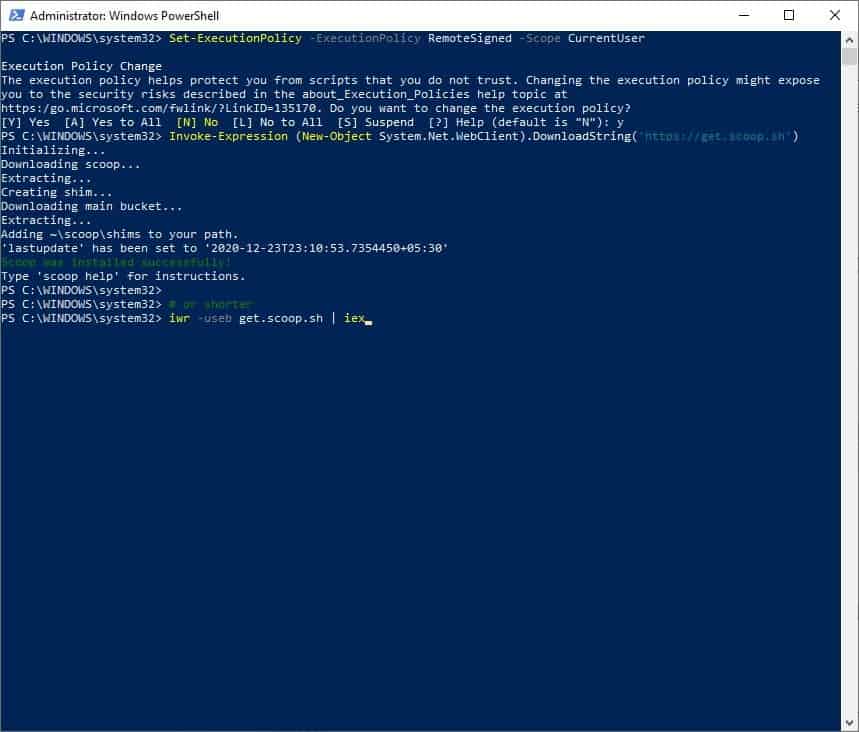
First, we'll need to install the tool.
How to install Scoop on your computer
Open a PowerShell window and paste the following command in it
Set-ExecutionPolicy -ExecutionPolicy RemoteSigned -Scope CurrentUser
This is required to install Scoop from the terminal.
Invoke-Expression (New-Object System.Net.WebClient).DownloadString('https://get.scoop.sh')
The command downloads and installs a Python script (install.PS1) from the official GitHub repository. Scoop will be installed to your User folder C:\Users\USERNAME\scoop, e.g. C:\Users\Ashwin\scoop.
Applications that are downloaded/installed by the utility are placed in the C:\ProgramData\scoop directory. By default, Scoop downloads portable versions of programs. That being said, the default list isn't for the average user, I'll explain more about this in a bit.
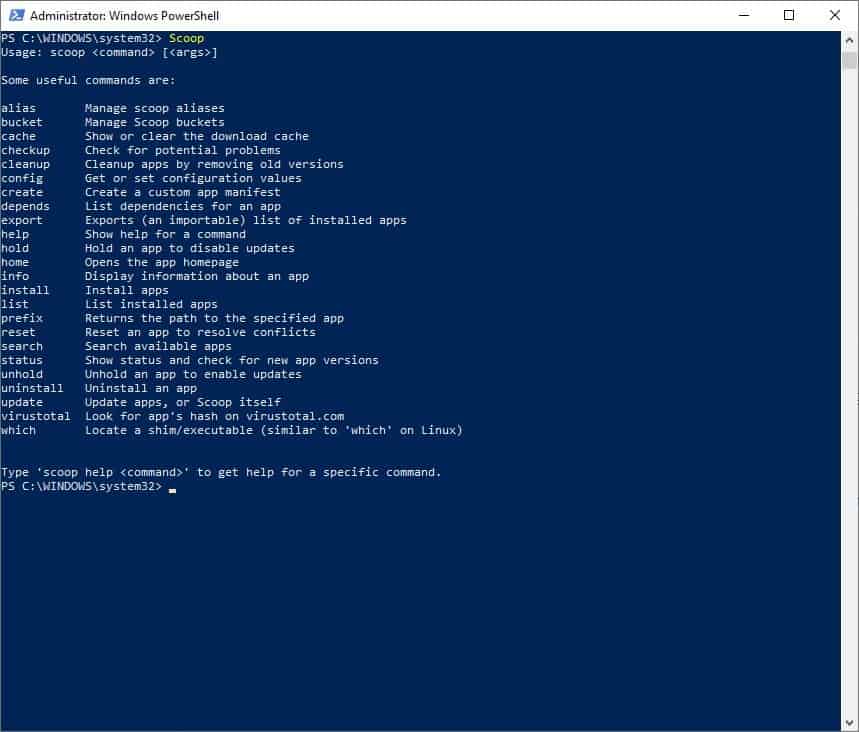
How to use Scoop
Type the word Scoop in a terminal window, and you'll see the list of commands that are supported by the program. To use one of the commands, type the word Scoop followed by the command's name like so,
Scoop checkup
If you're confused by a command, you can view its help section by typing Scoop help command name, e.g. Scoop help list.
How to install programs using Scoop
Before installing programs, we need to know the list of applications are available for download. To do that, type the following command:
Scoop search
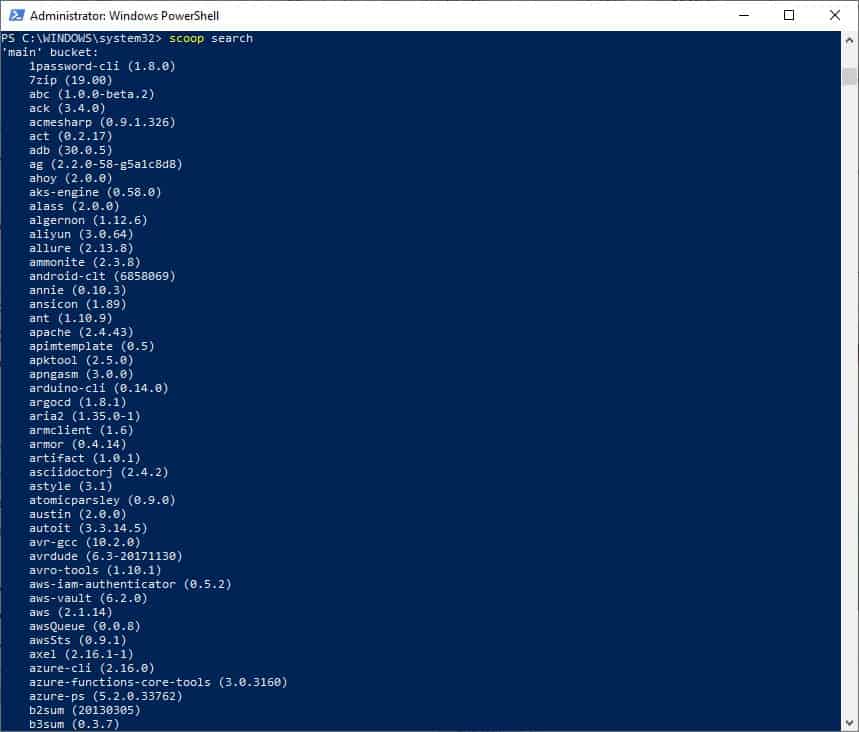
The tool will fetch the names and version numbers of all supported programs in its main list. Scoop's lists are called buckets, and it really does have a bucket load of applications. The default one is the main bucket, which consists of command-line applications. This is the reason why I said not everyone may find the list useful. But don't worry, you can add more buckets by using the command: Scoop bucket add BUCKETNAME. Visit this GitHub page to view a list of available buckets.
Let's add one that has the most popular programs. Type this in a Powershell window,
scoop bucket add extras
The extras bucket will be installed, you can verify this by typing Scoop bucket list.
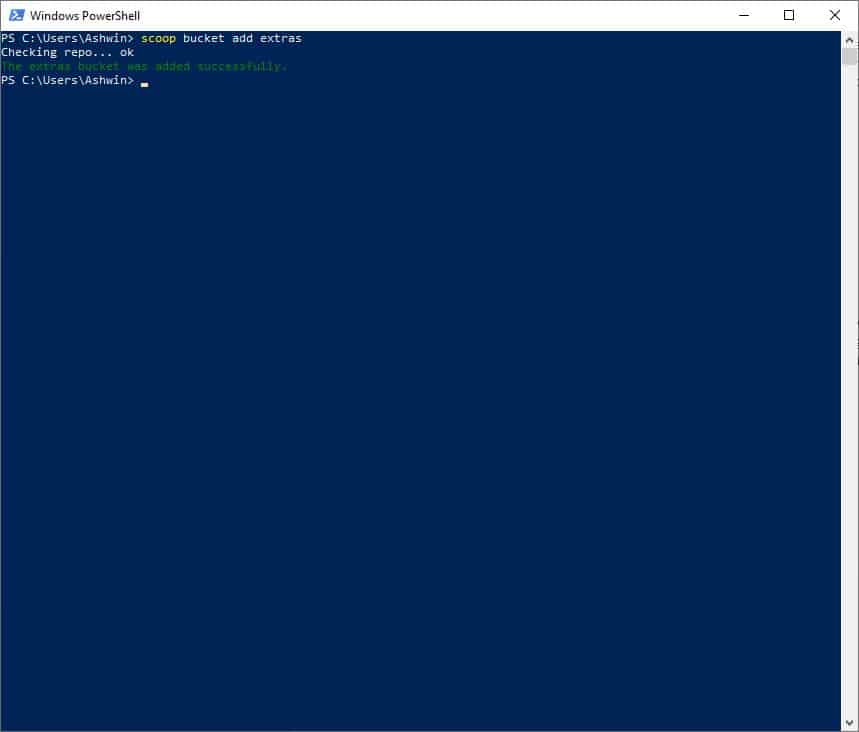
Now it is time to use Scoop to download and install a program. Say for example, you wanted to install Audacious, all you have to do is type Scoop install Audacious.
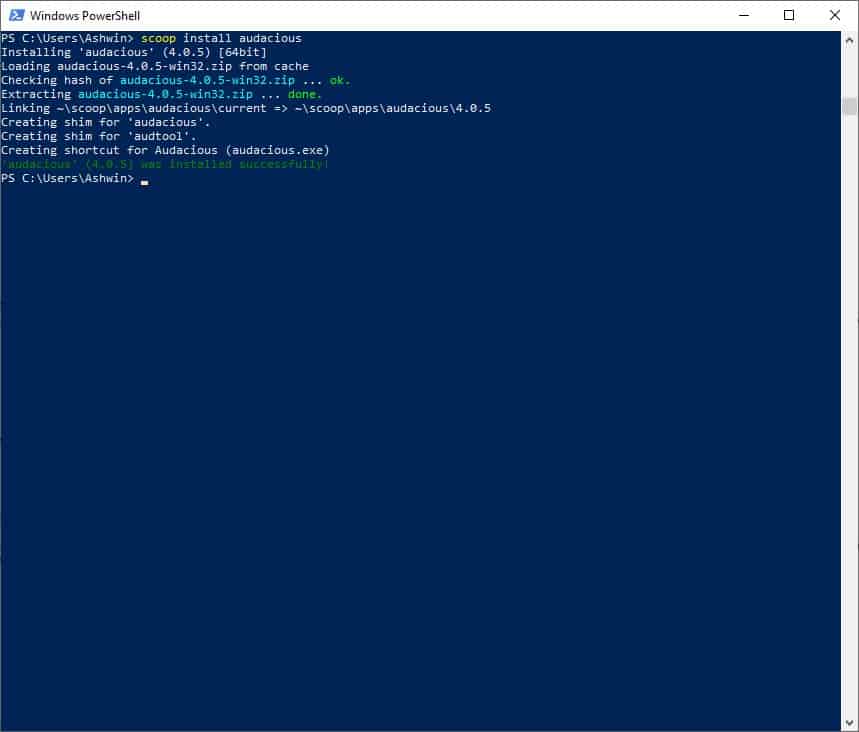
The command-line utility will download Audacious and install it silently. Easy isn't it? This will save you a lot of time if you want to install many programs. Speaking of which, head over to this page to view the list of programs that are available in the extras bucket.
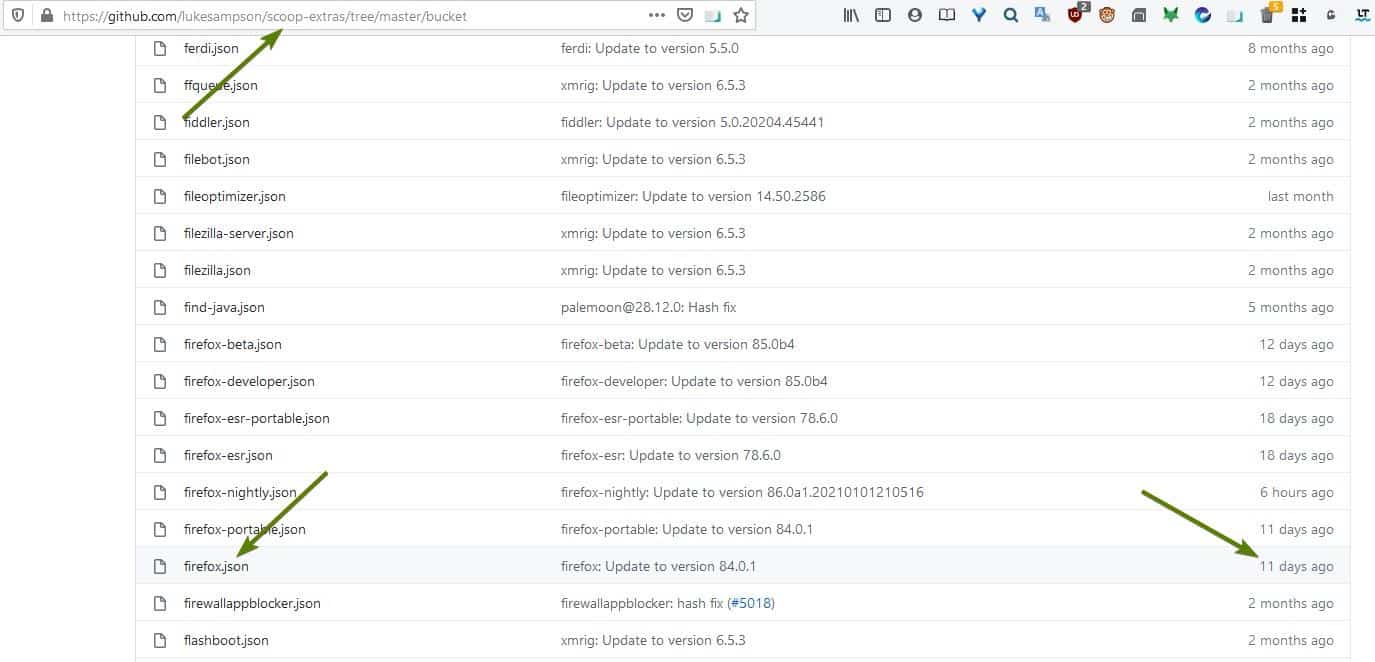
Don't want to go through the list? You can find applications using the search command, e.g. Scoop search Firefox
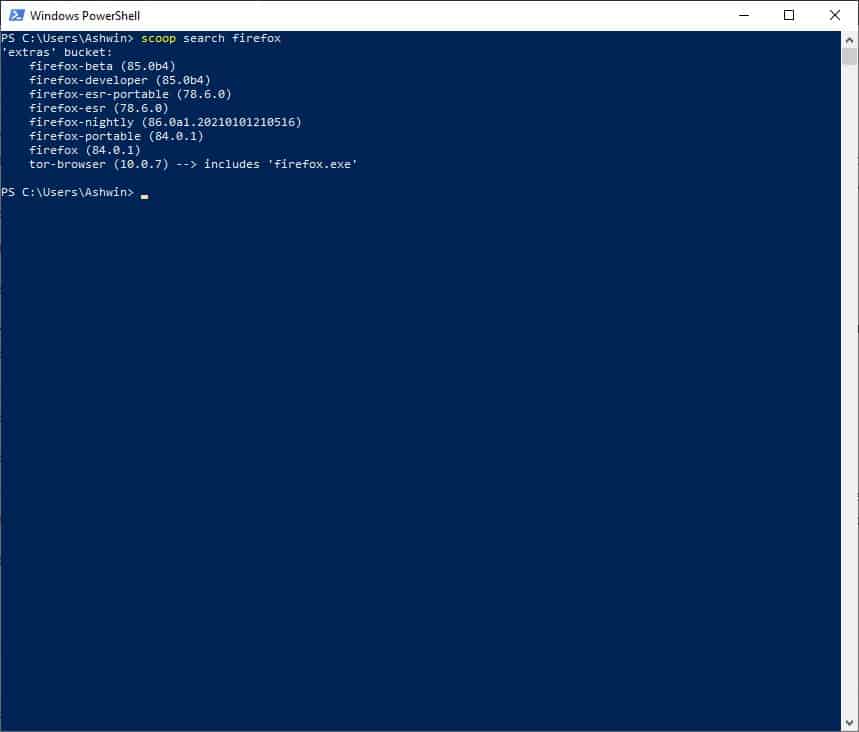
Can I use Scoop to update programs? Yes, to update applications you will need to run Scoop install git. This command forces the tool to fetch the bucket lists and save it as a local manifest on your computer, this list is used for comparing the version that is available on your computer. To uninstall a program, use the following command Scoop uninstall PROGRAMNAME.
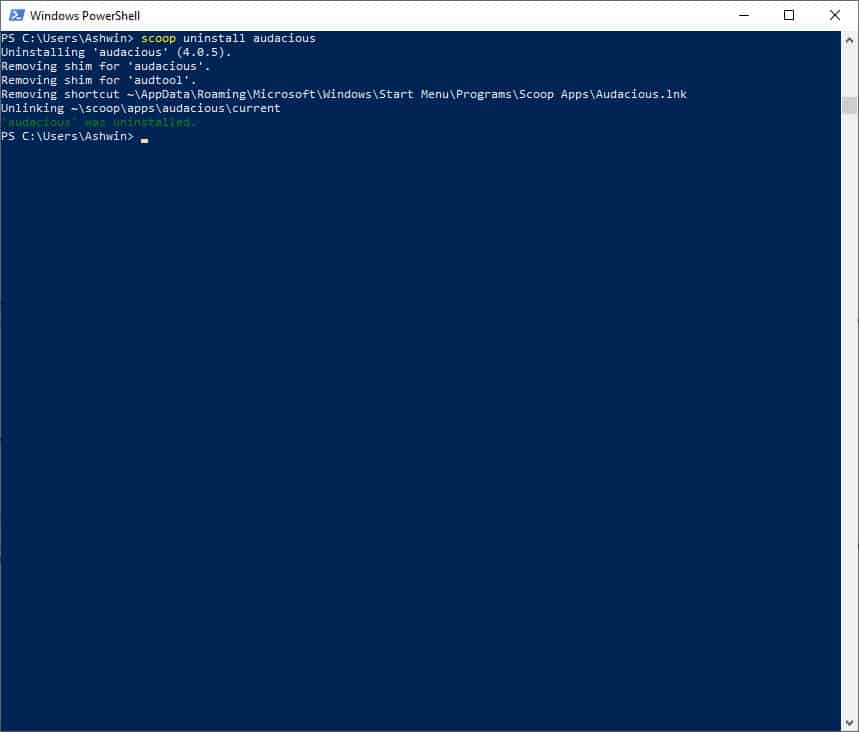
Scoop uninstall Audacious
Note: To remove a bucket, you need to use the rm command. E.g. scoop bucket rm extras
Scoop is an open source project.
Closing Words
Scoop is a good alternative to established projects; it is easy to use once you understand the concept of buckets, and the available selection of programs is quite good as well.
Now You: do you use a package installer on Windows?
Thank you for being a Ghacks reader. The post Scoop is an open source package installer for Windows appeared first on gHacks Technology News.
https://ift.tt/3b20iCN
from gHacks Technology News https://ift.tt/2JFKx99


No comments:
Post a Comment